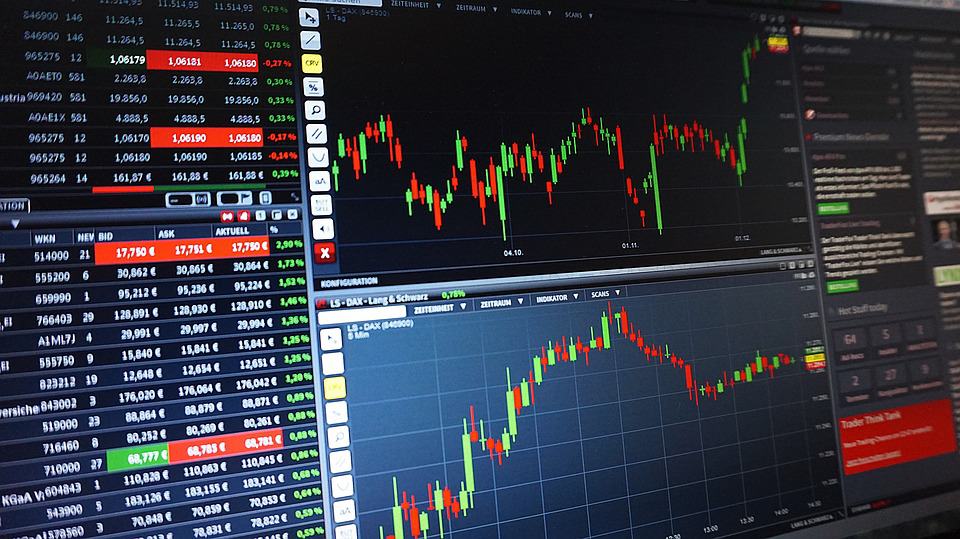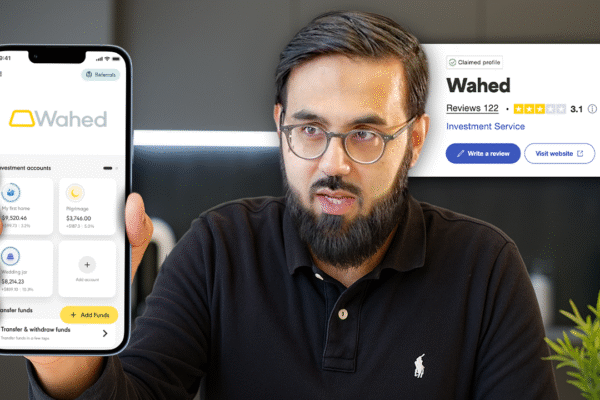What Islam says about Online Forex Trading: Finance | IFG


Ibrahim Khan
Co-founder
10 min read
Last updated on:
I have been meaning to explore further the retail foreign exchange (or forex) market following my initial thoughts on the topic here and here. In brief, my view still remains the same – from a Shari’ perspective it is one to probably still give a miss at this point in time. However, I believe it is not as clear-cut as I previously thought, and there are some quite complicated concepts to tussle with along the way.
I am going to assume you know the basics of modern retail foreign exchange (e.g. what a pip /currency pair is) – so if you don’t, have a quick read of any of the plethora of introductory texts to forex out there on the internet.
Brokers are the counterparties
The first insightful thing to note in retail forex is that pretty much all the big brokers in this space will act as your direct counterparty. This means that they will take the opposite side of the trade to you – if you go long USD/JPY, for example, they will go short. As an example, see IG’s terms here, and in particular read 2(2). 2(10) and 3(2). Most brokers will have similar terms, which say that they will act as principal (i.e. they will represent just themselves, and not some other client) and market-maker (i.e. they are the market you will be directly trading into). They will also usually reserve the right to offer different accounts to different clients depending on their experience and broker’s judgement. They will also point out that there can be conflicts of interest between the broker (and its subsidiaries/associates) and its clients.
What all this legal jargon means is, that when you, the average retail punter, go long USD/JPY, they will go short USD/JPY. They will not bother to hedge their own position in the most part, because they know that usually the retail punter (about 80% of the time) will get it wrong and end up making a loss anyway.
However, brokers will monitor how you do, and if you start improving and making a large percentage of successful trades, then they will still be your counterparty, but they will hedge their positions into the institutional market so that economically they are not exposed to any risk – whatever happens to the trade you placed. So if you, with your successful record that thebroker has earmarked, go long GBP/EUR, they will still go short in order to make a market, but there is a third transaction which is happening where the broker is dealing with someone else to go long GBP/EUR.
The result is obviously neutral. When you close, they will close. Any money they lose if you’ve been successful, they will gain on their own long GBP/EUR; equally, if your trade was unsuccessful and they gained money from you, they lose money because they went long GBP/EUR elsewhere. Now the only profit they are making is the brokerage commission they charge for each trade.
What really is a currency pair?
The second insight I found useful was looking at what equivalent economic activity would be required to replicate the effect of the currency pair.
Let’s take the USD/JPY again. When you go long on USD/JPY, you are hoping that the USD will rise against the JPY and you will make a profit. But you have not actually bought the $100,000 worth. You have simply held an exposure to an amount over a few days, before selling. This means that for those days you will have got paid rollover interest as well. Upon closing the trade you get paid the profit back into whatever currency your account is denominated in with your broker.
Economically, what you have done is you have borrowed JPY from the interbank market and then sold JPY for USD (via the broker), and then lent USD back to the interbank market. This means that each day you need to pay the interest on the JPY you borrowed, and each day you get paid interest on the USD you lent out. Eventually you get the USD back and convert it back into JPY, and then give it back to the interbank market where you borrowed it in the first place. Step by step this looks like:
Opening transaction
- Borrow JPY from Broker
- Exchange JPY for USD with Broker (Broker gets spread)
- Lend Broker USD
Closing transaction
- Get USD back from Broker
- Exchange USD for JPY (broker gets spread)
- Pay back JPY to broker
If the US interest rate that you are getting paid is higher than the JPY interest rate you are paying, then you will make a profit just holding this money paid (as long as the currencies themselves don’t vacillate too much in price).
Shari’ Solution 1
The two haram transactions in the above economic transaction-pattern are the two interest-bearing loan agreements. There are however certain brokers who will offer “Sharia compliant” accounts where there is no rollover. (Rollover however is only part of the puzzle and I don’t view such accounts as fully Sharia compliant – but let’s put that to one side for now).
Under such an account, you are gaining exposure directly to holding the money (not to the interest of holding the currencies). Therefore you are in effect achieving the above economic transaction pattern but without the interest elements. One could therefore argue that such accounts are Sharia compliant.
However the problem with this analysis is that the broker is the one who is extending that liquidity and also brokering the exchange. In effect, the broker is extending you that “interest-free” loan as it knows it will get (a) the exchange fee; and (b) 80% of the time it will profit as the counterparty to your trade.
Islamically, you are not allowed such a contract where what is actually happening is you have two contracts in one. Ask yourself this: would the broker give you the interest-free loan if you were not going to use that broker for your trade?
A counterargument to this is that there is no actual loan taking place when one buys or sells a currency pair, so this Shari’ issue doesn’t apply. But that is trying have your cake and eating it. Either (a) we say a currency pair is a synthetic product not analogous to any real-life economic activity, or (b) it is analogous to real-life economic activity. If it is a synthetic product not related to real-life economic activity then it is best characterised as just like any other zero-sum derivative (e.g. a CFD) and is ipso facto impermissible. Or we do model it as analogous to real-life economic activity – in which case we cannot use as a rebuttal “there aren’t actually any loans going on as it is synthetic” – because then (a) is applicable.
Shari’ Solution 2
The second approach to finding a solution is to take a purposive approach. The benefit of this approach is that a currency pair doesn’t easily translate to an equivalent real-world series of transactions (as we’ve just seen), but one can take a step back and see the wider purpose of forex. That is, to provide instant access to the currency market in a cheap and efficient way.
Under this analysis, if forex is just a modern, better, way of going to Travelex, then we should overlook any modern developments as wrinkles, rather than anything that fundamentally changes the nature of the activity. Thus the fact that the broker is often the counterparty to the trade and that the trade is on margin, should be overlooked.
But the problem with this analysis is that you can’t actually get physical money through forex, which is the whole point of currency conversion.
However, this could arguably be a quirk of the international financial plumbing we have in place today as well as an increasingly globalised world. But in order to explain that point, let’s turn to the institutional forex market.
Institutional Forex Market
The institutional forex market is made up of large financial institutions, where trades are between such financial institutions (as opposed to the broker and you), where margin is not used (most of the time), and where the primary driver of these trades is necessity rather than speculation. For example, companies will need to transfer £100m into dollars or yen in order to complete a transaction, and in order to do that, they go through the institutional forex market. Other companies will need regular arrangements in place to facilitate payments to/from their suppliers/purchasers. Yet other companies will need to hedge their currency risk (though these are separate topics in themselves).
Under this characterisation of the industry, institutional forex trading looks Sharia compliant to me for three primary reasons:
- There is a genuine need for these transactions;
- There does not appear to be margin being used in a lot of these transactions; and
- Actual settlement takes place
(1) is important, as it allows us to live with the conventional T+1 or T+2 settlement that is standard in this industry. In Islamic law, currency trading should be hand-to-hand, and on-spot, and therefore should not be delayed for 1 or 2 days as is standard in the industry. However, given the degree that this T+2 convention is now established, it is something institutions have to live with if they are to participate in the institutional forex market – which they need to participate in. For the more Sharia-aware, it might be an idea to use the biggest banks, with the strongest capitalisations, to handle forex trades, as that reduces risk/uncertainty – which are some of the key reasons for the prohibition in the first place.
Banks have established debtor-creditor agreements between themselves, rather like margin accounts that retail traders will have with their broker, so one could argue that this is a form of margin. However, this need not concern the institutional participant for two reasons. Firstly, what the bank does at the settlement stage is their own concern, and secondly, the institutional investor itself is clearly not magnifying its profits/losses by way of this debtor-creditor agreement.
Finally, actual settlement takes place, even if it is T+1/2. Given we are talking about $5.3 trillion being traded daily, it seems sensible enough to me to allow a couple of days to get the money flows to the right place. But the fact that actual currency goes from one person to another supports the idea that institutions are trading in currency because of a genuine need, as opposed to pure speculation.
But pure speculation is not in my view wrong either. If you have a £100m and decide that you want to trade it for Euro, because Euro is going to rise in your view, then as long as you do not use margin, I don’t see any reason to stop you from placing that trade.
Returning to Shari’ Solution 2
But that takes me back to retail forex. The only reason why you and I cannot trade in the institutional forex market (which is halal, in my view), is because we don’t have sufficient funds to meet even the very minimum trade sizes ($1-5m) in the institutional market.
But if you do want to speculate, then the only way you can do so efficiently is by participating in the retail forex market. The alternative of using Travelex is not viable, as there would be no margin involved and currency movements are tiny from day-to-day. The argument would therefore be, that as a retail trader you can only speculate using retail forex, with a margin account, and as fundamentally currency speculation is halal, trading on a margin account is halal as that is the only way available.
However this is a flawed argument too. You can’t say “a man with £100m can set up and run a large successful international business. Running such a business is halal. But I don’t have that £100m. So the only thing stopping me from doing the halal business is money. Therefore I can borrow that money.” Just because scale is stopping you from accessing a halal way of doing that activity, does not mean you can justify margin trading/interest-based lending. There is also no need for you to speculatively trade forex, which might have otherwise justified things.
Conclusions
Retail forex is still not permissible in my book, for all the reasons discussed above, and generally, as retail forex is equivalent to a CFD and receives the same Shari’ treatment all such products receive.
If however, one could have a forex set-up where a retail punter was given an interest-free loan of £x on an interest free basis from an entity legally distinct from the broker (and properly distinct from it, i.e. not in the same group), and could use that for trading, then that would be Sharia-compliant. But that doesn’t look particularly commercially viable. The only way that I could see would be a government profit-free trust set up to lend to Muslim retail forex traders for the purpose of allowing them to trade forex. But that seems like a rather frivolous use of government currency, and one that no government would ever seriously consider.
I look forward to hearing your thoughts on this, particularly if you disagree with me!
Please also remember to subscribe to our website if you would like to keep in the loop with more articles like these.
Two excellent resources I stumbled across:
Comments (0)
Related Articles
View all
Wahed Invest – A Detailed Review & How to Use It (2025)
24 July 2025 15 min read

The Fall of Riba in the New York of Ancient Arabia
21 March 2025 4 min read


Leave a Reply